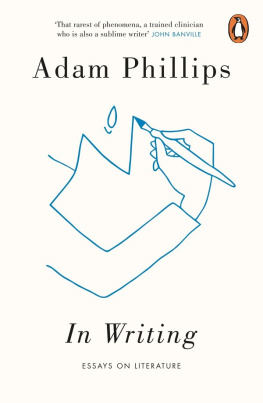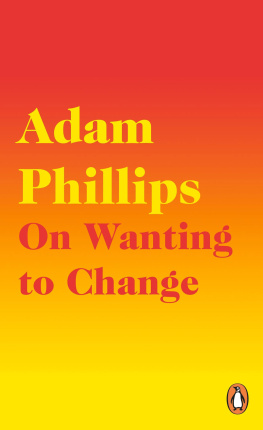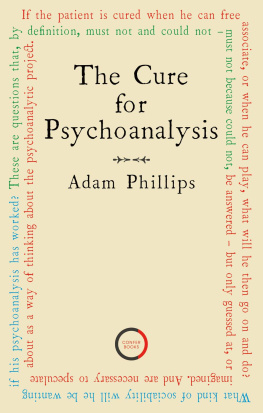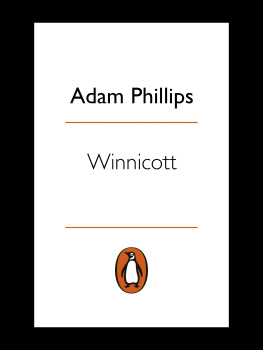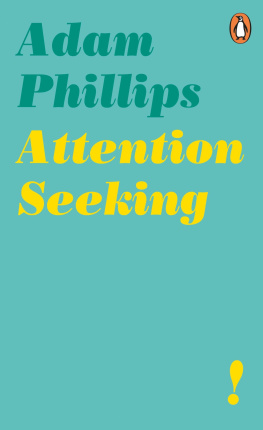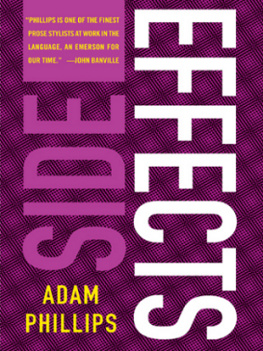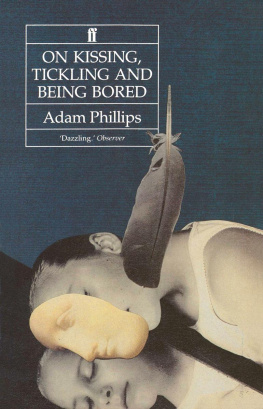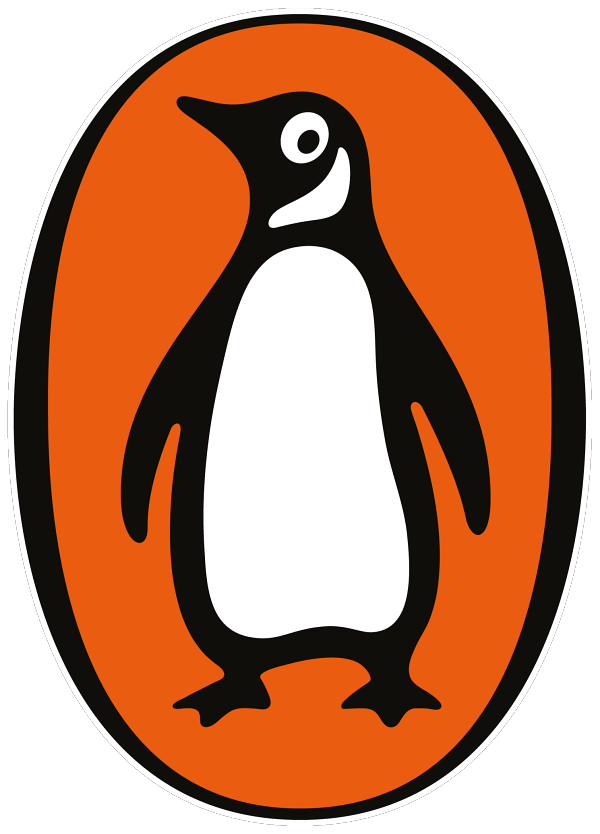By the same author
Winnicott
On Kissing, Tickling and Being Bored
On Flirtation
Terror and Experts
Monogamy
The Beast in the Nursery
Darwins Worms
Promises, Promises
Houdinis Box
Equals
Going Sane
Intimacies (with Leo Bersani)
Side Effects
On Kindness (with Barbara Taylor)
The Concise Dictionary of Dress (with Judith Clark)
On Balance
Missing Out
One Way and Another
Unforbidden Pleasures
Becoming Freud
The Vulgar (with Judith Clark)
EDITOR OF
Charles Lamb: Selected Prose
Walter Pater: The Renaissance
Edmund Burke: A Philosophical Enquiry
The Electrified Tightrope: Selected Psychoanalytic
Papers of Michael Eigen
Richard Howard: Selected Poems
(with Hugh Haughton)
John Clare in Context (with Hugh Haughton)
The Book of Interruptions (with David Hillman)
General Editor of the new Penguin Modern
Classics Freud translations
In memory of Richard Poirier and J-B Pontalis,
who encouraged me
Not every human being has the luxury of not being a fanatic.
Nancy Bauer, How to Do Things with Pornography
Sometimes it seems that a line or so was simply added by the actor into his part even if it did not always make sense in the fuller context of the play.
Tiffany Stern, Making Shakespeare
Only works of propaganda are addressed to a wider audience.
Pierre Hadot, Philosophy as a Way of Life
culture as balm, identity as pacifier.
Maureen N. McLane, Critical Mass
Preface
It is often amazing to people who like writing that most people are not at all interested in it. A lot of people, of course, find it useful, but it doesnt give them the pleasure people who love reading can feel; nor the sense that people who study or teach literature can have that reading and writing are somehow essential to the lives they want to live. Whatever the appeal of writing is and it must be considerable given its staying power it is not clear how it is best served; other, that is, than by writing itself. Nor indeed what is being served in the valuing of it.
Like any minority interest that, because it is a minority interest, is felt to be perpetually under threat, this can prompt defences (and idealizations) of the so-called humanities that often betray, in their vehemence and the nature of their claims, a lack of confidence in writing; as though without considerable justification it might disappear; as though it cant hold its own against its competitors; as though we might be in danger of losing interest in language, or in the right sort of language. So when people defend literature now it is difficult for them not to sound like people defending a religion, or a political ideology, or a local hospital. Instead of believing that literature, rather like psychoanalysis, is just for the people who like it that it makes them feel alive in ways they prefer; that it sustains what they care about; that it creates interest and engagement and curiosity; and creates jobs they want to do, and institutions, like universities, and libraries, and publishing houses, which they value it can be made to sound like a life-support system, or preparation for a moral beauty contest. Exaggerated claims prompt the suspicions they are intended to dispel. The best defence of literature is writing that appeals to people, but in ways they find difficult to articulate. Its worth wondering what we fear might happen to literature if we no longer defended it.
Because writing can only ever be as good as its readers make it, it is always tempting to blame the audience (people dont read enough, or properly; they dont read the right things, and so on). But it is misleading to be only cross with the people who dont share your pleasures (or your values). People read and write to find out if there is a group of like-minded people; and, if there isnt, to try to make one. Writing neednt be a world-domination project successful writers arent like rock stars or celebrities but just the attempt to find enough people who are interested in what matters most to you. So the whole notion of the successful writer is always contentious, and reading can be one of the things we do in which we dont have to worry about success. That a writer engages our attention, and how or why he or she does, are the only things that matter. And these things matter because of the thoughts and feelings and conversations and lives to which they can lead.
Both literature and psychoanalysis can help us work out what are the conversations we crave that may get us the lives we want. It is only worth having relationships that bring out the best in us, and both literature and psychoanalysis can give us a clue about what these relationships might be, and about what the best in us is. But commitment to psychoanalysis narrows the mind over-organizes our attention in ways that an interest in literature can avoid. The extraordinary range of tones and rhythms and voices and sentences that is literature exposes the limits, and the limitations, of psychoanalysis, and its descriptions of what a person is, and can be. So I have always admired writers like, say, W. H. Auden, or Randall Jarrell, or William Empson, or Louise Glck, or Richard Rorty, or Marion Milner, or Stanley Cavell, or Wendy Brown who could be interested in psychoanalysis without having to be committed to it. Writers who could, however inexplicitly, use psychoanalysis, among many other things, to make something of their own. Psychoanalysis is at its best when it is unpredictably useful; when it inspires something other than total devotion, and so stops just repeating itself. The problem with (and for) psychoanalysts has always been that they have to believe in psychoanalysis.
Like all essentialist theories all theories that, because they know where they start from, set strict limits to where they can go psychoanalysis makes a cult out of what could be just good company. It is very difficult to go on being interesting and interested to go on seeing and listening differently if you are trapped in a vocabulary. It is very difficult to avoid the seductions and grandiosities of generalization if you always already know what you are looking (or reading) for. This is why psychoanalysis applied to literature can be so stupefying. It all too easily assumes, as the critic Mikko Tuhkanen writes, that works of art are like queer adults, who, according to psychoanalysis, havent quite got their stories straight. Psychoanalysis is just one way of wondering what we are doing when we are trying to get our stories straight.
The essays in this book are written in the belief that psychoanalysis has something to offer our reading and writing (and the living of our lives), without being quite sure what that is; while being quite sure that literature has far more to offer, which is not more of the same. Psychoanalysis, of course, has its own so-called literature, just as literature could be described as having an interest in psychology (though reading literature, in all its diversity, can make you wonder what psychology could possibly be). But neither need be a commentary on the other; we can just allow for the fact that they have overlapping preoccupations. That they both contribute, as much else does, to our repertoire of descriptions.

